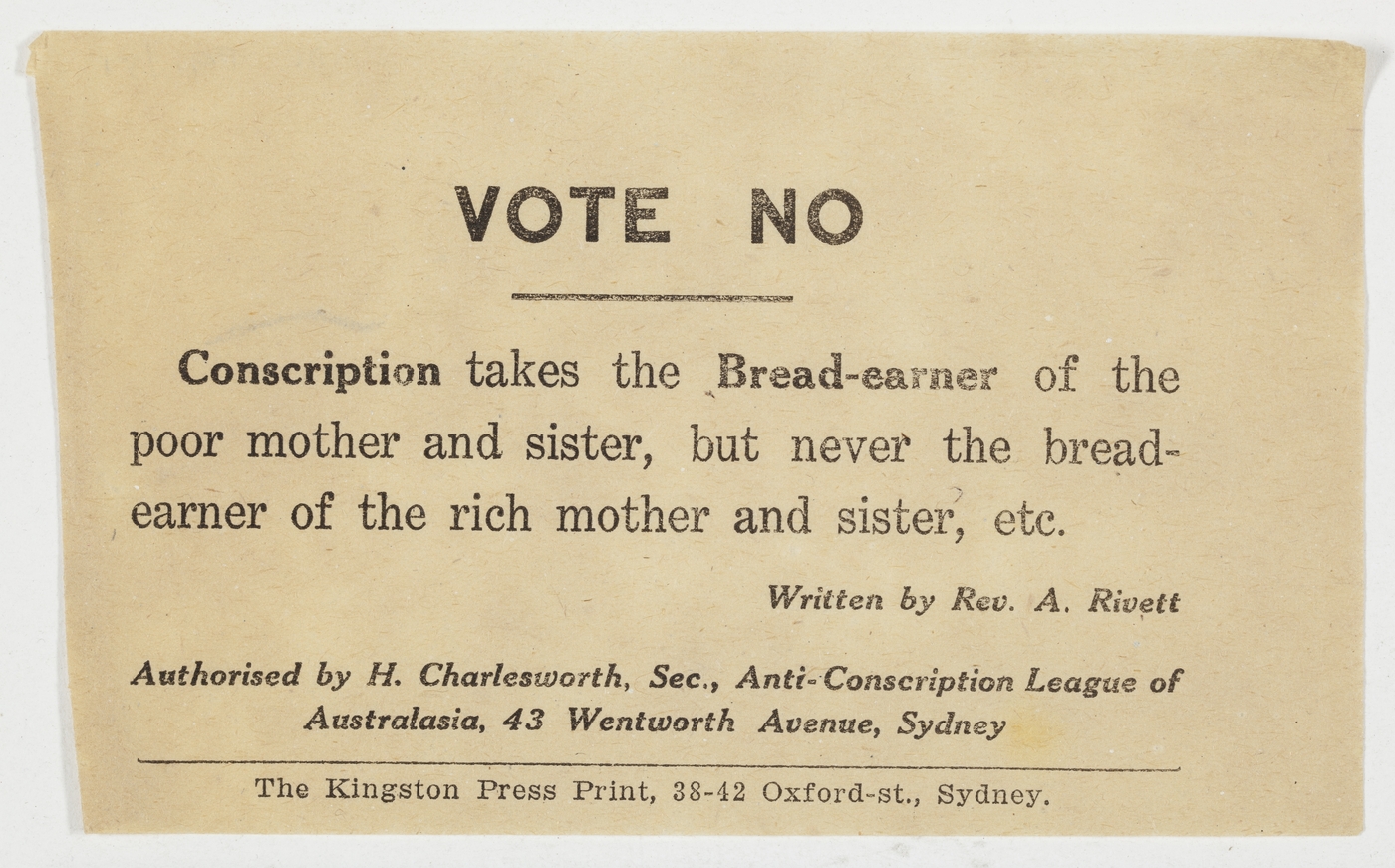The Dictionary of Sydney was archived in 2021.
Vote No: Conscription takes the Bread-earner of the poor mother and sister, but never the bread-earner of the rich mother and sister, etc 1915-1917

From the collections of the
(from the Anti-Conscription League of New South Wales minute book, 1915-1917, Mitchell Library)

